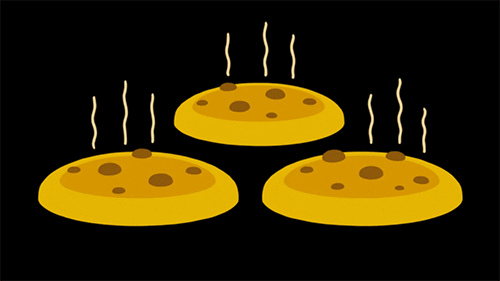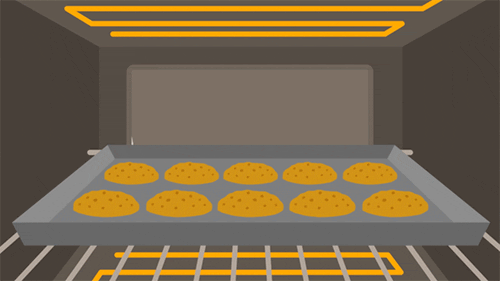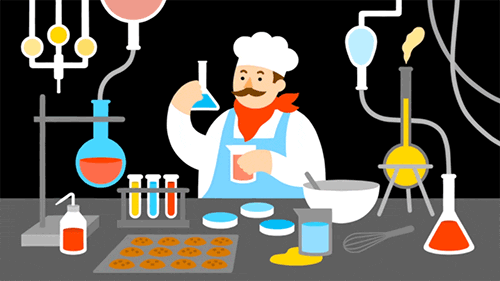Smparticle2 - Untitled

More Posts from Smparticle2 and Others

Faster, smaller, more powerful computer chips: Hafnia dons a new face
Materials research creates potential for improved computer chips and transistors
It’s a material world, and an extremely versatile one at that, considering its most basic building blocks – atoms – can be connected together to form different structures that retain the same composition.
Diamond and graphite, for example, are but two of the many polymorphs of carbon, meaning that both have the same chemical composition and differ only in the manner in which their atoms are connected. But what a world of difference that connectivity makes: The former goes into a ring and costs thousands of dollars, while the latter has to sit content within a humble pencil.
The inorganic compound hafnium dioxide commonly used in optical coatings likewise has several polymorphs, including a tetragonal form with highly attractive properties for computer chips and other optical elements. However, because this form is stable only at temperatures above 3100 degrees Fahrenheit – think blazing inferno – scientists have had to make do with its more limited monoclinic polymorph. Until now.
Read more.




5 Cookie Pro Tips from TED-Ed (and Science)

1. Cookies are for everyone. But everyone has cookie preferences. When you slide that cookie tray into the oven, you’re setting off a series of chemical reactions that transform one substance - dough - into another - cookies! The better you understand ‘Cookie Chemistry’, the better equipped you will be to create the cookies you crave.

2. Lots goes on in that oven, but one of science’s tastiest reactions occurs at 310º. Maillard reactions result when proteins and sugars breakdown and rearrange themselves into ring like structures which reflect light in a way that gives foods their distinctive, rich brown color. As this reaction occurs, it produces a range of flavor and aroma compounds, which also react with each other forming even more complex tastes and smells.

3. The final reaction to take place inside your cookie is caramelization and it occurs at 356º. Caramelization is what happens when sugar molecules breakdown under high heat, forming the sweet, nutty and slightly bitter flavor compounds that define…caramel! So if your recipe calls for a 350º oven - caramelization will never happen.
So, if your ideal cookie is barely browned - 310º will do. But if you want a tanned, caramelized cookie, crank up the heat! Caramelization continues up to 390º degrees.

4. No need to check that oven like a fiend. You don’t even really need a kitchen timer - when you smell the nutty, toasty aromas of the Maillard reaction and caramelization, your cookies are ready!

5. Baking is chemistry, friends! That’s right - PURE. SCIENCE. Check carefully before altering those recipes - chances are some of those ingredients and quantities are there for a reason.
Curious what else happens in that oven? Check out the TED-Ed Lesson The chemistry of cookies - Stephanie Warren
Animation by Augenblick Studios





Chances are you or somebody you know has recently become the owner of an Instant Pot, the multifunction electric pressure cooker that can produce fork-tender pot roasts in less than an hour, as well as brown meat, cook beans without soaking, and even do the job of a rice cooker or crockpot. The Instant Pot isn’t advertised on TV or in the newspapers, and yet it’s become a viral marketing success story, with owners often describing themselves as “addicts” or “cult members.” That’s the kind of word-of-mouth publicity Instant Pot founders dreamed of when they first began designing the countertop appliances.
The Instant Pot electric pressure cooker has been around since 2010, but really became the buzz during the last six months of 2016. While the company’s electric pressure cookers are sold at Wal-Mart, Target and Kohl’s, the bulk of its sales come from Amazon, driven by social media. Deep discounts on Amazon Prime Day and again on Black Friday, along with the viral online sharing of these sales, turned Instant Pot into a household name. With 215,000 units sold on Prime Day alone, the Instant Pot Duo is Amazon’s top-selling item in the U.S. market. Not bad for a company that does no TV or print advertising and only recently began the process of hiring a marketing agency.
Not Just A Crock: The Viral Word-Of-Mouth Success Of Instant Pot
Photo: Grace Hwang Lynch

Self-assembling particles brighten future of LED lighting
Just when lighting aficionados were in a dark place, LEDs came to the rescue. Over the past decade, LED technologies – short for light-emitting diode – have swept the lighting industry by offering features such as durability, efficiency and long life.
Now, Princeton engineering researchers have illuminated another path forward for LED technologies by refining the manufacturing of light sources made with crystalline substances known as perovskites, a more efficient and potentially lower-cost alternative to materials used in LEDs found on store shelves.
The researchers developed a technique in which nanoscale perovskite particles self-assemble to produce more efficient, stable and durable perovskite-based LEDs. The advance, reported January 16 in Nature Photonics, could speed the use of perovskite technologies in commercial applications such as lighting, lasers and television and computer screens.
“The performance of perovskites in solar cells has really taken off in recent years, and they have properties that give them a lot of promise for LEDs, but the inability to create uniform and bright nanoparticle perovskite films has limited their potential,” said Barry Rand an assistant professor of electrical engineering and the Andlinger Center for Energy and the Environment at Princeton.
Read more.
Woahh!!!



The Application of Sunblock in Visible and UV Light.
(lifepixel)






「Howls Moving Castle (2004) {+color palletes} 」insp.

Scientists build bacteria-powered battery on single sheet of paper
Instead of ordering batteries by the pack, we might get them by the ream in the future. Researchers at Binghamton University, State University of New York have created a bacteria-powered battery on a single sheet of paper that can power disposable electronics. The manufacturing technique reduces fabrication time and cost, and the design could revolutionize the use of bio-batteries as a power source in remote, dangerous and resource-limited areas.
“Papertronics have recently emerged as a simple and low-cost way to power disposable point-of-care diagnostic sensors,” said Assistant Professor Seokheun “Sean” Choi, who is in the Electrical and Computer Engineering Department within the Thomas J. Watson School of Engineering and Applied Science. He is also the director of the Bioelectronics and Microsystems Lab at Binghamton.
“Stand-alone and self-sustained, paper-based, point-of-care devices are essential to providing effective and life-saving treatments in resource-limited settings,” said Choi.
On one half of a piece of chromatography paper, Choi and PhD candidate Yang Gao, who is a co-author of the paper, placed a ribbon of silver nitrate underneath a thin layer of wax to create a cathode. The pair then made a reservoir out of a conductive polymer on the other half of the paper, which acted as the anode. Once properly folded and a few drops of bacteria-filled liquid are added, the microbes’ cellular respiration powers the battery.
Read more.
-
 martina86 liked this · 1 year ago
martina86 liked this · 1 year ago -
 ariel-seagull-wings liked this · 1 year ago
ariel-seagull-wings liked this · 1 year ago -
 phillips-123-sblog liked this · 2 years ago
phillips-123-sblog liked this · 2 years ago -
 dwtb-h liked this · 3 years ago
dwtb-h liked this · 3 years ago -
 the-pisces-girl liked this · 4 years ago
the-pisces-girl liked this · 4 years ago -
 dillpicklesunflowerseed liked this · 5 years ago
dillpicklesunflowerseed liked this · 5 years ago -
 roamiller liked this · 6 years ago
roamiller liked this · 6 years ago -
 unmannormalx liked this · 7 years ago
unmannormalx liked this · 7 years ago -
 lemoonquarius reblogged this · 8 years ago
lemoonquarius reblogged this · 8 years ago -
 solxdestruidx reblogged this · 8 years ago
solxdestruidx reblogged this · 8 years ago -
 solxdestruidx liked this · 8 years ago
solxdestruidx liked this · 8 years ago -
 wwwwwwalquiria reblogged this · 8 years ago
wwwwwwalquiria reblogged this · 8 years ago -
 celestialblues-blues liked this · 8 years ago
celestialblues-blues liked this · 8 years ago -
 clonazepunkk reblogged this · 8 years ago
clonazepunkk reblogged this · 8 years ago -
 jitterart liked this · 8 years ago
jitterart liked this · 8 years ago -
 alexaacollettee liked this · 8 years ago
alexaacollettee liked this · 8 years ago -
 diamondandthemarinas liked this · 8 years ago
diamondandthemarinas liked this · 8 years ago -
 aeizzattoha liked this · 8 years ago
aeizzattoha liked this · 8 years ago -
 wanna-be-mean-girl liked this · 8 years ago
wanna-be-mean-girl liked this · 8 years ago -
 uzziiiangel liked this · 8 years ago
uzziiiangel liked this · 8 years ago -
 mallow-wolf reblogged this · 8 years ago
mallow-wolf reblogged this · 8 years ago -
 mallow-wolf liked this · 8 years ago
mallow-wolf liked this · 8 years ago -
 chlorineblondie liked this · 8 years ago
chlorineblondie liked this · 8 years ago -
 kill-em-all-1988 liked this · 8 years ago
kill-em-all-1988 liked this · 8 years ago -
 lux-in-tenebris-bg reblogged this · 8 years ago
lux-in-tenebris-bg reblogged this · 8 years ago -
 lux-in-tenebris-bg liked this · 8 years ago
lux-in-tenebris-bg liked this · 8 years ago -
 lunarael liked this · 8 years ago
lunarael liked this · 8 years ago -
 zhenulkasorokina liked this · 8 years ago
zhenulkasorokina liked this · 8 years ago -
 heidiiaj-blog liked this · 8 years ago
heidiiaj-blog liked this · 8 years ago -
 nonbinaryfroggy liked this · 8 years ago
nonbinaryfroggy liked this · 8 years ago -
 emma-no-sekai liked this · 8 years ago
emma-no-sekai liked this · 8 years ago -
 northsereno liked this · 8 years ago
northsereno liked this · 8 years ago -
 ittybittybubbles reblogged this · 8 years ago
ittybittybubbles reblogged this · 8 years ago -
 sonnnjja-blog liked this · 8 years ago
sonnnjja-blog liked this · 8 years ago -
 legendofdustorgold liked this · 8 years ago
legendofdustorgold liked this · 8 years ago -
 elladoobscurodelanoche-blog liked this · 8 years ago
elladoobscurodelanoche-blog liked this · 8 years ago -
 444ngeldust reblogged this · 8 years ago
444ngeldust reblogged this · 8 years ago -
 weludixon reblogged this · 8 years ago
weludixon reblogged this · 8 years ago -
 jazzyjadeharley liked this · 8 years ago
jazzyjadeharley liked this · 8 years ago -
 slab-o-meat liked this · 8 years ago
slab-o-meat liked this · 8 years ago -
 bianca29753 liked this · 8 years ago
bianca29753 liked this · 8 years ago -
 chasing-dreams-since-1995 reblogged this · 8 years ago
chasing-dreams-since-1995 reblogged this · 8 years ago -
 chasing-dreams-since-1995 liked this · 8 years ago
chasing-dreams-since-1995 liked this · 8 years ago -
 pnd27x liked this · 8 years ago
pnd27x liked this · 8 years ago
